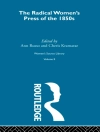If modernism marked, as some critics claim, an ‘apocalypse of cultural community, ‘ then Osip Mandelstam (1891-1938) must rank among its most representative figures. Born to Central European Jews in Warsaw on the cusp of the modern age, he could claim neither Russian nor European traditions as his birthright. Describing the poetic movement he helped to found, Acmeism, as a ‘yearning for world culture, ‘ he defined the impulse that charges his own poetry and prose. Clare Cavanagh has written a sustained study placing Mandelstam’s ‘remembrance and invention’ of a usable poetic past in the context of modernist writing in general, with particular attention to the work of T. S. Eliot and Ezra Pound.
Cavanagh traces Mandelstam’s creation of tradition from his earliest lyrics to his last verses, written shortly before his arrest and subsequent death in a Stalinist camp. Her work shows how the poet, generalizing from his own dilemmas and disruptions, addressed his epoch’s paradoxical legacy of disinheritance–and how he responded to this unwelcome legacy with one of modernism’s most complex, ambitious, and challenging visions of tradition. Drawing on not only Russian and Western modernist writing and theory, but also modern European Jewish culture, Russian religious thought, postrevolutionary politics, and even silent film, Cavanagh traces Mandelstam’s recovery of a ‘world culture’ vital, vast, and varied enough to satisfy the desires of the quintessential outcast modernist.
Sobre el autor
Clare Cavanagh is Associate Professor of Slavic Languages at the University of Wisconsin. She is the cotranslator, with Stanislaw Baranzack, of
Polish Poetry of the Last Two Decades of Communist Rule and
View with a Grain of Sand: Selected Poetry of Wislawa Szymborska.












